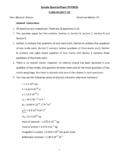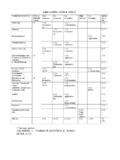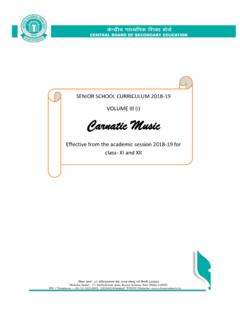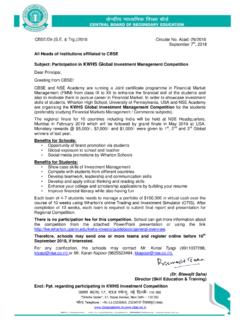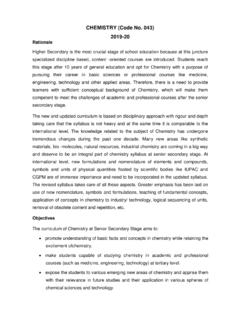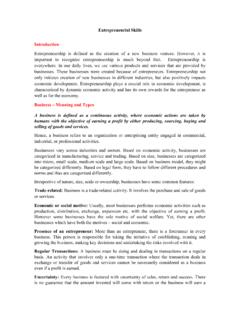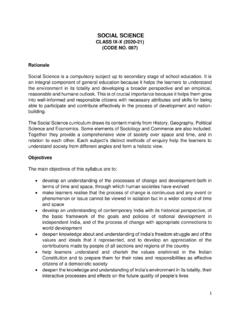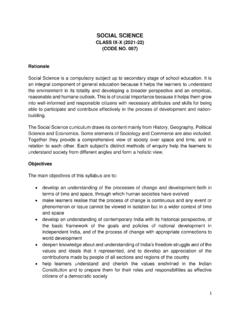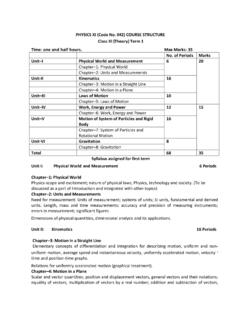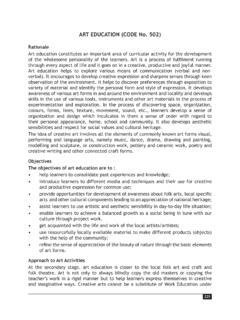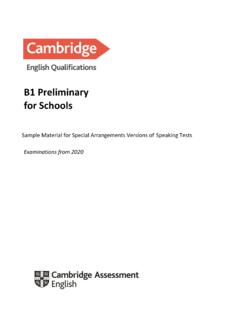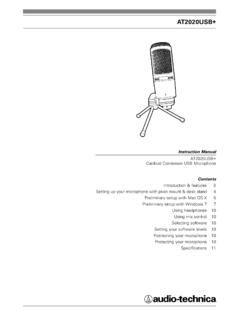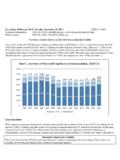Transcription of Guidelines for Assessment in Listening and Speaking Skills ...
1 1 Guidelines for Assessment in Listening and Speaking Skills (ALS) Classes XI-XII English Core (Code 301) Total Marks: 20 Term I: 10 Marks: Assessment of Listening and Speaking Skills ALS must be seen as an integrated component of all four language Skills rather than a compartment of two. Suggested activities, therefore, take into consideration an integration of the four language Skills but during Assessment , emphasis will be given to Speaking and Listening , since reading and writing are already being assessed in the written exam. Listening Skill: The focus is to use the Assessment of Listening Skills for improving learners competency to listen for basic interpersonal, instructional and academic purposes.
2 A number of sub- Skills need to be developed in the everyday classroom transaction. Given below are some of the sub- Skills of Listening which need to be assessed for the Internal Assessment component of Listening : i. Listening for Specific Information ii. Listening for General Understanding iii. Predictive Listening iv. Inferential Listening v. Listening for Pleasure vi. Intensive Listening vii. Evaluative Listening Hence, the Assessment items being prepared by subject teachers must assess the above. Speaking Skill: Assessment of Speaking Skills must be made an important component of the overall Assessment , using this Assessment as learning. i. Activities: Subject teachers must refer to books prescribed in the syllabus.
3 In addition to the above, teachers may plan their own activities and create their own material for assessing the Listening and Speaking Skills . ii. Parameters for Assessment : The Listening and Speaking Skills are to be assessed on the following parameters: a) Interactive competence (Initiation & turn taking, relevance to the topic). b) Fluency (cohesion, coherence and speed of delivery). c) Pronunciation d) Language (accuracy and vocabulary). 2 A suggestive rubric is given below: Interaction 1. Contributions are mainly unrelated to those of other speakers Shows hardly any initiative in the development of conversation Very limited interaction 2. Contributions are often unrelated to those of the other speaker Generally passive in the development of conversation 3.
4 Develops interaction adequately, makes however minimal effort to initiate conversation Needs constant prompting to take turns 4. Interaction is adequately initiated and develop Can take turn but needs little prompting 5. Can initiate & logically develop simple conversation on familiar topics Can take turns appropriately Pronunciation Insufficient accuracy in pronunciation; many grammatical errors Communication is severely affected Frequently unintelligible articulation Frequent phonological errors Major communication problems Largely correct pronunciation & clear articulation except occasional errors Some expressions cause stress without compromising with understanding of spoken discourse.
5 Mostly correct pronunciation & clear articulation Can be clearly understood most of the time; very few phonological errors Can pronounce correctly & articulate clearly Is always comprehensible; uses appropriate intonation Fluency & Coherence Noticeably/ long pauses; rate of Speech is slow Frequent repetition and/or self- correction Links only basic sentences; breakdown of coherence evident Usually fluent; produces simple speech fluently, but loses coherence in complex communication Often hesitates and/or resorts to slow speech Topics partly developed; not always concluded logically Is willing to speak at length, however repetition is noticeable Hesitates and/or self corrects; occasionally loses coherence Topics mainly developed, but usually not logically concluded Speaks without noticeable effort, with a little repetition Demonstrates hesitation to find words or use correct grammatical structures and/or self-correction Topics not fully developed to merit Speaks fluently almost with no repetition & minimal hesitation Develops topic fully & coherently Vocabulary & Grammar Demonstrates almost no flexibility, and mostly struggles for appropriate words Uses very basic vocabulary to express view- points.
6 Communicates with limited flexibility and appropriacy on some of the topics Complex forms and sentence structures are rare; exhibits limited vocabulary to express new ideas Communicates with limited flexibility and appropriacy on most of the topics Sometimes uses complex forms and sentence structures; has limited vocabulary to describe/ express new points Can express with some flexibility and appropriacy on most of the topics Demonstrates ability to use complex forms and sentence structures most of the time; expresses with adequate vocabulary Can express with some flexibility and appropriacy on a variety of topics such as family, hobbies, work, travel and current events Frequently uses complex forms and sentence structures; has enough vocabulary to express himself/ herself 3 iii.
7 Schedule: The practice of Listening and Speaking Skills should be done throughout the academic year. The final term I Assessment of the Skills is to be done as per the convenience and schedule of the school. Term II: 10 Marks Project Work + Viva-Voce Out of ten marks allotted for the term, 5 marks will be allotted for the project report/script /essay etc. and 5 for the viva. The Project will be ONE small project work to be covered in the Term II. However, the planning for the project by students in consultation with the teachers can begin early. Schedule: Schools are expected to adhere to the timeline specified by the Board for the planning, preparation and viva-voce of ASL based projects.
8 The final Assessment of the Skills is to be done on the basis of parameters suggested by the board. Language teachers, however, have the option to adopt/ modify these parameters according to their school specific requirements. I. Suggestions for Project Work: The Project can be inter-disciplinary in theme. The ideas/issues highlighted in the chapters/ poems/ drama given the prescribed books can also be developed in the form of a project. Students can also take up any relevant and age-appropriate theme. Such topics may be taken up that provide students with opportunities for Listening and Speaking . Some suggestions are as follows: a. Interview-Based research: Example: Students can choose a topic on which to do their research/ interview, a student can choose the topic : Evolving food tastes in my neighbourhood or Corona pandemic and the fallout on families.
9 Read the available literature. The student then conducts interviews with a few neighbours on the topic. For an interview, with the help of the teacher, student will frame questions based on the preliminary research/background. The student will then write an essay/ write up / report etc. up to 1000 words on his/her research and submit it. He / She will then take a viva on the research project. The project can be done in individually or in pairs/ groups 4 b. Listen to podcasts/ interviews/radio or TV documentary on a topic and prepare a report countering or agreeing with the speakers. Write an 800 - 1000 words report and submit. Take a viva on the report.
10 C. Students create their own video/ Audio, after writing a script. Before they decide on a format, the following elements can be taken into consideration: Theme/topic of the audio / video. Would the child like to pick a current issue or something artistic like theatre? What are the elements that need to be part of the script? Will the video/audio have an interview with one or more guests? Would they prefer to improvise while chatting with guests, or work from a script? What would be the duration? How would they present the script/report to the teacher, Can it be in the form of a narrative? d. Write, direct and present a theatrical production, /One act play This will be a project which will be done as a team.
